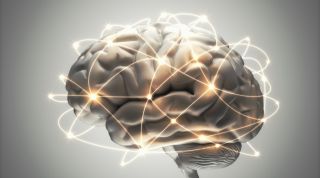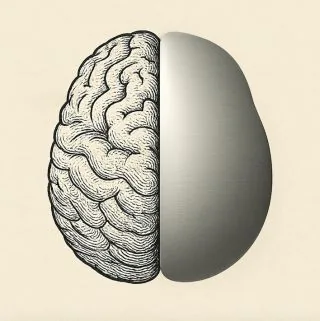Artificial intelligence has transformed how we work, learn, and think in just a few short years. From ChatGPT crafting essays to AI assistants managing our schedules, these tools promise efficiency but raise important questions about their cognitive costs. Recent research suggests that our growing reliance on AI might be affecting our fundamental thinking abilities in ways we’re only beginning to understand.
The Cognitive Cost of AI Assistance
A groundbreaking MIT study provides compelling evidence about how AI tools impact our brain activity and learning processes. Researchers divided 54 participants into three groups: one using ChatGPT for essay writing, another using traditional Google search, and a third relying solely on their own knowledge. The findings revealed significant differences in cognitive engagement.
Participants using ChatGPT showed consistently lower brain activity across 32 monitored regions. Even more concerning, their brain engagement decreased with each subsequent essay assignment. This pattern suggests that as people grow accustomed to AI assistance, they become mentally lazier, with many resorting to simple copy-paste approaches by the study’s end.
“ChatGPT users consistently underperformed at cognitive, linguistic, and behavioral levels,” the researchers noted.
The Memory and Learning Connection
The study’s most revealing aspect emerged when participants were asked to reproduce their earlier essays without AI assistance. The ChatGPT group demonstrated poor memory retention of their previous work, highlighting the crucial link between cognitive effort and long-term learning.
Key findings about memory and AI usage:
- Active thinking strengthens memory formation
- Passive consumption of AI-generated content impairs retention
- The brain-only group showed higher satisfaction and curiosity
- Cognitive engagement directly correlates with skill acquisition
Interestingly, when the brain-only group later used ChatGPT to enhance their work, they produced more creative and well-argued essays while maintaining their original thinking. This suggests that AI can enhance learning when used strategically rather than as a replacement for thinking.
Understanding AI Model Collapse
Beyond individual cognitive impacts, researchers are observing early signs of AI model collapse—a phenomenon where AI tools begin recycling and amplifying their own inaccuracies. Like the children’s game of “Telephone,” where messages become distorted through repetition, AI systems can enter feedback loops that reduce overall accuracy.
This problem compounds when considering AI’s erratic “thinking” patterns. The tools process information differently based on task complexity, creating unpredictable results. When combined with widespread educational adoption, where students complete essays in minutes without cognitive effort, the implications for long-term skill development become concerning.
Preserving Critical Thinking Skills
Critical thinking represents one of our most valuable cognitive abilities, focusing not just on what we know but how and why we know it. These skills enable us to test assumptions, evaluate evidence, and make informed decisions—capabilities essential for both personal and professional success.
The research highlights that quality AI integration should enhance rather than replace critical thinking. Current approaches often fall short by not challenging our cognitive capabilities enough, potentially leaving us vulnerable to diminished mental capacity over time.
Practical Strategies for Balanced AI Use
- Use AI as a brainstorming partner rather than a content generator
- Always review and refine AI-generated content with your own critical analysis
- Set cognitive boundaries by deciding which tasks require your full mental engagement
- Practice regular “brain-only” work to maintain your thinking muscles
- Use AI for research augmentation rather than replacement of learning processes
University students report feeling “anxious, confused and distrustful” when engaging with AI in learning environments. This emotional response underscores the need for careful implementation and clear guidelines about when and how to use AI tools effectively.
Moving Forward with AI Intelligence
The evidence clearly shows that how we use AI determines its impact on our cognitive abilities. While AI tools offer tremendous potential for enhancing productivity and learning, they require mindful implementation to avoid diminishing our critical thinking capabilities.
The key lies in recognizing that AI should complement rather than replace human intelligence. By maintaining active engagement with challenging tasks and using AI strategically as a tool rather than a crutch, we can harness its benefits while preserving our cognitive strengths. The future of AI integration depends on finding this balance—where technology enhances rather than diminishes our innate capacity for deep, critical thought.








